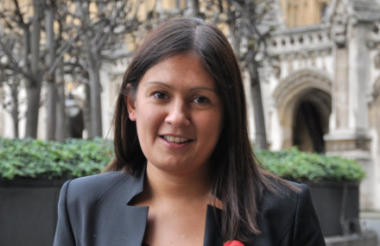Lisa Nandy, Labour MP and former shadow minister for civil society, has made a formal complaint about the appointment of Baroness Stowell as chair of the Charity Commission.
She said that the government’s reluctance to answer questions had “heightened concerns of a cover-up”, in a letter to the culture secretary, and said that the appointment risks further damaging public confidence in the sector.
The department’s complaints process means it must respond within 20 working days.
Stowell was confirmed in post at the end of last week despite a negative report from the committee of MPs which scrutinised the process and criticism from leaders and some sector bodies, led by Acevo.
The Digital, Culture, Media and Sport Committee, said it had concerns about Stowell’s experience of charity and regulation as well as her performance before the committee last month. It also said it was concerned about the way the process had been conducted and demanded answers from the department regarding when decisions were taken.
Matt Hancock, secretary of state for digital, culture, media and sport, has consistently stood by his appointment and said he thinks she will be "brilliant". Stowell has also been backed by Julia Unwin, who was an independent member of the selection panel, as “the outstanding candidate”, and has been warmly welcomed by NCVO.
The appointment was expected to be made at the end of last year, but the pre-appointment hearing was postponed and the government has not offered much in the way of explanation for the delay.
Questions in Parliament
Labour MPs, including Nandy, have previously raised their concerns in Parliament.
In written questions last week Nandy asked DCMS to publish the names of the candidates, what discussions were had with cabinet colleagues about the appointment, specifically if the prime minister was involved and whether the candidates had been ranked.
Tracey Crouch, minister for civil society, responded to say that the names would not be released because they are personal data, she said ministers “discus a range of issues”, but did not specify if this had included the Charity Commission.
Crouch also insisted that the appointment panel had not been asked to rank the three appointable candidates.
She said: “Paragraph 3.1 of the Cabinet Office Governance Code for Public Appointments stipulates that Advisory Assessment Panels must not rank candidates unless specifically requested by the Minister. The Advisory Assessment Panel received no such request for this competition and candidates were assessed as either ‘appointable’ or ‘unappointable.’ Baroness Stowell was duly found appointable by the Panel.”
Process 'breached the code'
But Nandy said she thinks the process has breached the code in five ways.
1. Ministerial responsibility – Nandy said: “During this process your department has repeatedly failed to answer reasonable questions about the appointment process and subsequently announced the appointment through the media”.
2. Merit – Nandy said that Stowell has a “stark lack of relevant experience” and that she was not able to demonstrate transferable skills
3. Openness – Nandy said that the “failure to explain the lengthy delays” and “withholding information from the select committee and Parliament has meant that the process has lacked transparency”.
4. Assurance – Nandy asked Hancock to confirm if he had consulted the Commissioner for Public Appointments after the negative report from the committee.
5. Fairness – Nandy said: “No explanation has been given by your department as to how a candidate who lacks the appropriate experience and skills has been fairly appointed or assessed against the relevant criteria”.
Nandy concluded: “The appointment is of critical public importance. Recent high-profile cases, including the collapse of Kids Company, the fundraising activities of the Presidents Club and safeguarding breaches at Oxfam, have damaged public confidence in charities.
“Additionally in recent years many charities have lost faith in the independence and effectiveness of the regulator. At a time when trust is so low, your failure to embrace the principles governing public appointments is therefore extremely serious. For all these reasons the appointment cannot be justified.”
Ministers have appointed a Tory peer with no relevant experience as Chair of the Charity Commission and have withheld key information from Parliament - my official complaint to DCMS. pic.twitter.com/xwJ2fpqqUf
— Lisa Nandy (@lisanandy) March 6, 2018
|
Related articles










